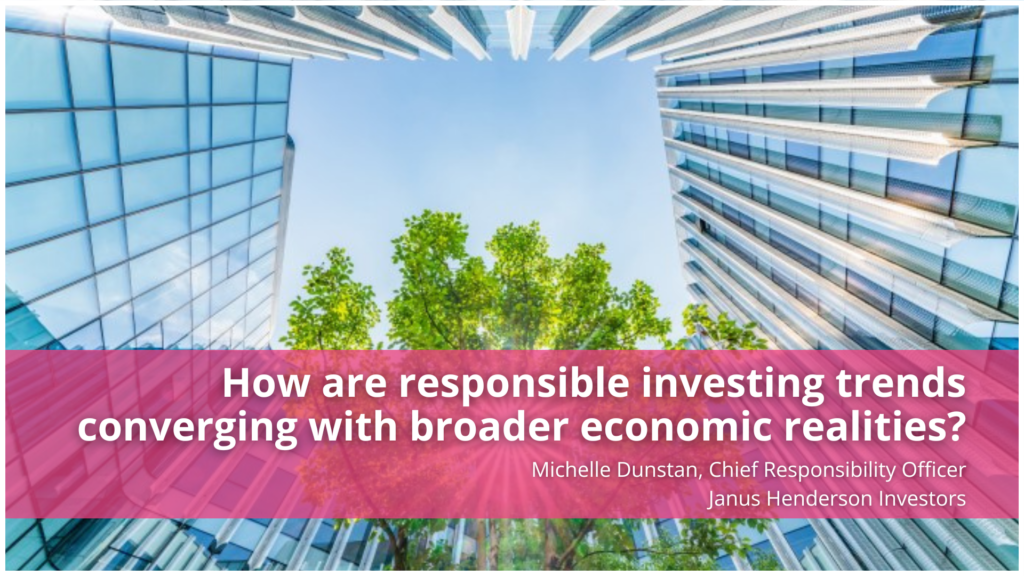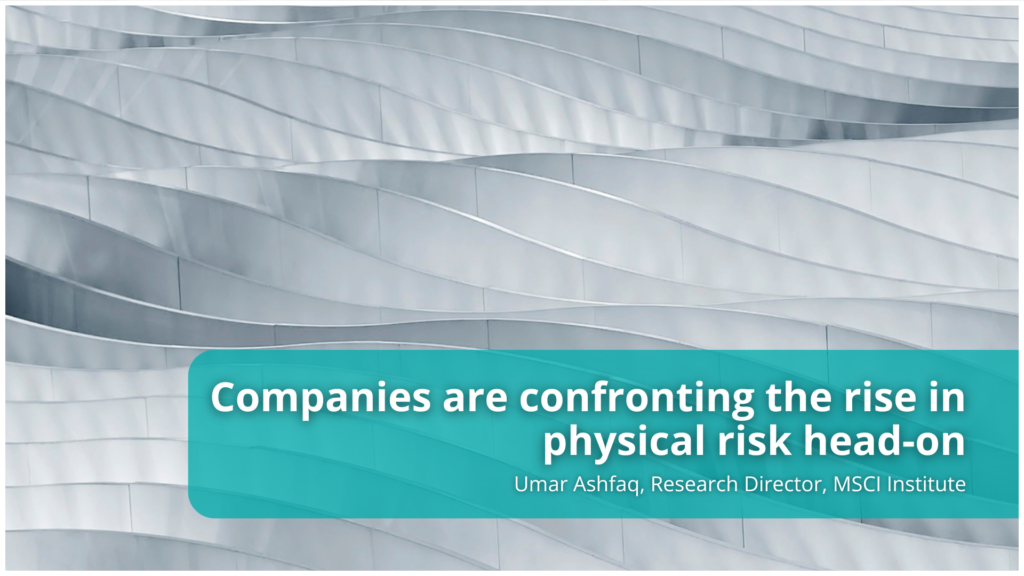The importance of stewardship when selecting companies
Clare Wood, Portfolio Specialist, Stewart Investors

Note: The views expressed on these pages are the opinions of their respective author(s) only and do not necessarily reflect the views and opinions of UKSIF.
This website should not be taken as financial or investment advice or seen as an endorsement or recommendation of any particular company, investment or individual. While we have sought to ensure information on this site is correct, we do not accept liability for any errors.
The importance of stewardship when selecting companies
Clare Wood, Portfolio Specialist, Stewart Investors
It is often said that investing is simple, but not easy. And it is certainly not easy for investors to have the inclination, culture, or structure allowing them to make investment decisions with a timeframe longer than the next twelve months. But in a world which is increasingly short-term focused, one of the most enduring competitive advantages a company can have is a long-term business builder at the top.
We believe the quality of management has the greatest bearing on a company’s long-term success or failure. But people who take capital allocation and risk-taking decisions like long-term owners are all too rare in global equity markets. We often find them as first-generation entrepreneurs, families, foundations or organisations with exceptional cultures. In a world of corporate blow-ups, short term management enrichment, and mistreatment of minority shareholders, it’s important to know who you are handing your money to.
For example, cyber-security company Fortinet was founded and is still run today by two brothers, Ken and Michael Xie. They have a long history of building successful cyber security businesses based on their engineering education and training. The Xie brothers have built Fortinet by driving product expansion through technical merit, while the industry chases the short-term gain of acquisition. It’s an approach that has enabled them to offer a single platform approach to cyber security. This provides customers with the simplicity that their competitors can’t achieve, being held back by a legacy of purchased technology and the complexity that comes with it.
By developing their own hardware and investing in chip power development, they have produced a chip that delivers better performance at a lower cost. The impact of this is twofold; other companies struggle to compete with Fortinet pricing, and customers with lower budgets can still access best of breed solutions, expanding their total addressable market.
Brazilian industrial company WEG started life as an electric motor company in 1961, founded by the three people whose initials became its name. Over the last 65 years, it has grown into a global company producing electrical products for end markets across industrial automation, power generation and distribution, and large electric vehicles. While it is no longer run by the families of the founders, they remain majority shareholders, enabling them to take decisions in the long-term interest of the company.
A key decision taken early in WEG’s history was to remain vertically integrated. They make every element of every product themselves and even source packaging materials from their own forest. This is in sharp contrast to the drive for efficiency through outsourcing that has been business orthodoxy over past decades. At times it has slowed their rate of capacity expansion. But it has provided them with a critical advantage: they can take market share when competitors are paralysed by supply chain snarls. For example, they have been able to supply transformers to data centres even as competitors face 4-year delays in building additional capacity.
Conversely, we have sold investments when the management acted against the best interests of all stakeholders. Our initial decision to invest in a world-leading healthcare company was inspired by a CEO who simplified a complex conglomerate into a focused healthcare business. However, we lost confidence when they responded poorly to quality issues in one of their products, leading to a subsequent recall. The way people respond to a crisis provides insights into the quality of stewardship. In this case, we felt that the short-term needs of shareholders were prioritised over the long-term health of the business. We sold our shares in the company after engaging with management over our concerns.
And there are the countless investments that we never made because the management was not of sufficient quality. This often happens with companies that could be considered high-quality businesses in most other respects and are often found in sustainable and ESG funds. For example, Bloomberg estimated that around 770 ESG funds worldwide were holding shares of a green energy company when its chairman was accused by US prosecutors of suspected bribery.
Like any qualitative judgement, assessing the quality of the people in charge of companies is more art than science and we have made mistakes that we have learned from. We have also learned that one of the surest ways to lose client money is by handing it to people who are not primarily focused on the long-term performance of their company and minority shareholders who are along for the ride. And we have been fortunate enough to invest alongside some great business builders where incentives, decisions and timeframes have led to fantastic growth over the long term.
Note: The views expressed on these pages are the opinions of their respective author(s) only and do not necessarily reflect the views and opinions of UKSIF.
This website should not be taken as financial or investment advice or seen as an endorsement or recommendation of any particular company, investment or individual. While we have sought to ensure information on this site is correct, we do not accept liability for any errors.


